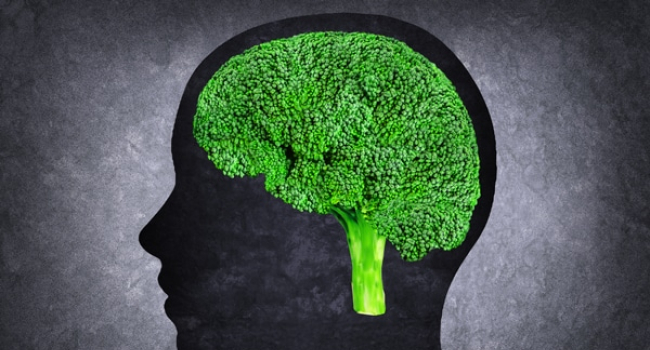- Latest news▼
-
18:15, May 4 What role does diet plays in the treatment of bipolar disorder?

-
10:52, May 4 Scientists identified dangerous health effects for families with gas cookers in their homes

-
12:36, May 3 Smoking during pregnancy may lead to obese children, study finds

-
10:29, May 3 Scientists discover cell responsible for repairing damaged liver tissue

-
20:17, May 2 NBR: low to moderate intensity exercise protects against depression

-
18:28, May 2 Sixth Armenian International Ophthalmological Conference will be held on 17-19 May

-
16:11, May 2 ВJN: High-fat foods may increase the risk of heart attack and stroke at a young age

-
14:16, May 2 Patterns: Neural network created that models outcome of various patient therapy methods

-
12:05, May 2 Armenia joins Council of Europe convention on protection of patients' rights

-
14:27, May 1 Journal of Neuroscience: Sluggishness of the elderly is due to greater use of calories, research finds

-
10:26, May 1 AstraZeneca admits its Covid vaccine can cause thrombosis

-
19:31, April 30 Scientists calculated how much time per day you should be sitting, standing and sleeping

-
17:37, April 30 The Conversation: Keeping bread in the fridge improves its health benefits

-
14:30, April 30 Frontiers in Molecular Biosciences: Researchers use AI to identify 191 new destructive viruses

-
08:38, April 30 The Guardian: First personalized cancer vaccine developed

All materials
How does lack of vegetables in diet affect health?

The lack or absence of vegetables in the diet can negatively affect the brain, according to nutritionist Kiersten Hickman.
According to the publication Eat This, Not That!, the lack of vegetables in the daily diet can lead to intestinal problems, lack of satiety after a meal and lack of essential nutrients.
A balanced diet, according to the expert, is also very important for proper brain function. According to a study published in the journal Psychiatry Research, not enough fruits and vegetables in the diet increases the risk of depression. For example, people who eat flour products, sweets and semi-finished products do not get enough of the vitamins contained in vegetables, which are necessary for normal functioning of the brain.
Kiersten Hickman says that fruits and vegetables are a major source of fiber and complex carbohydrates, and without them, a person will not feel completely full, which can lead to overeating. In addition, not having enough fiber can lead to spikes in blood sugar levels, which can make a person feel hungry even if they have eaten recently.
Fiber is also very important for the proper functioning of the digestive system, and a lack of it, according to Hickman, can disrupt bowel regularity. Also, due to the lack of vegetables in the diet, the body will not receive many nutrients and vitamins that cannot be made up for in any other way. For example, vitamins A, C, E, magnesium, zinc, phosphorus, and folic acid are very difficult to get from other sources, but vegetables contain plenty of them.
Follow NEWS.am Medicine on Facebook and Twitter
- Related News
- ВJN: High-fat foods may increase the risk of heart attack and stroke at a young age Consumption of anti-inflammatory plant foods (berries, vegetables, seeds, nuts, and spices) at age 10 years additionally led to a reduction in arterial stiffness...
- Ketodiet improved the condition of patients with schizophrenia and bipolar disorder Participants showed reductions in depression, anxiety, and overall severity of mental illness...
- Appetite: Scientists found out the secret to the appeal of large portions of fast food Volunteers more often than not considered junk food in large portions to be the most tasty...
- Unhealthy amount of sugar found in baby food products of a well-known brand Mixes and cereals hitting shop shelves in Switzerland, Germany, France and the UK were unsweetened, while boxes of the same name in the Philippines, South Africa and Thailand contained inadequate amounts of sugar per serving...
- Scientists found baked goods and lack of sleep to be more dangerous than alcohol Eating foods high in trans fatty acids and not getting enough sleep can lead to overweight and obesity, increasing the risk of serious diseases...
- Video
- Event calendar
- Archive
- Most read
month
week
day
- 3 women diagnosed with HIV for first time after getting ‘beauty injections’ in US 1266
- AstraZeneca admits its Covid vaccine can cause thrombosis 1150
- The Guardian: First personalized cancer vaccine developed 1149
- Scientists calculated how much time per day you should be sitting, standing and sleeping 1141
- The Conversation: Keeping bread in the fridge improves its health benefits 1128
- In 64% of COVID-19 survivors, the condition worsens after one year 1120
- Ketodiet improved the condition of patients with schizophrenia and bipolar disorder 1024
- Frontiers in Molecular Biosciences: Researchers use AI to identify 191 new destructive viruses 1020
- Journal of Neuroscience: Sluggishness of the elderly is due to greater use of calories, research finds 964
- 362 cases of measles recorded in Armenia so far in 2024 944
- Sixth Armenian International Ophthalmological Conference will be held on 17-19 May 906
- ECU: body tilt in patients after stroke was found to be curable 891
- Blood: blood cancer drugs may be useful in rheumatoid arthritis 857
- Armenia joins Council of Europe convention on protection of patients' rights 781
- NBR: low to moderate intensity exercise protects against depression 780
- Find us on Facebook
- Poll





